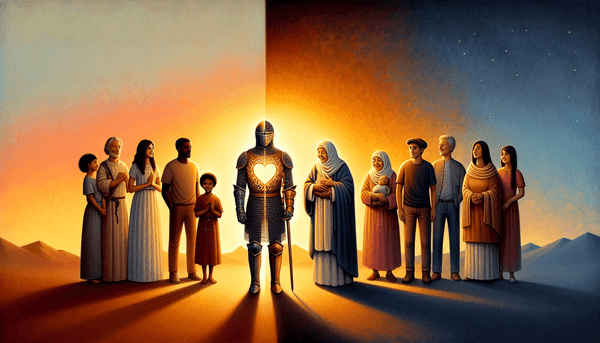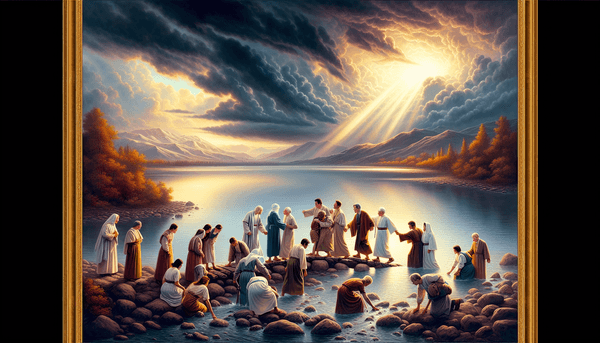Celebrating Christian Holidays
Christian holidays are a time for worship, reflection, and community. Church services during Christmas, as described in Luke 2:10-11, remind us of the joy and hope brought into the world with the birth of Jesus. Similarly, Easter services resonate with the message of resurrection and eternal life, as expressed in John 11:25-26. These gatherings are not just a ritual but an embodiment of the faith community, as emphasized in Hebrews 10:25, where believers are encouraged to meet together and encourage one another. Prayer and reflection offer a personal sanctuary for believers to connect with God, expressing gratitude as 1 Thessalonians 5:16-18 advises, to 'Rejoice always, pray continually, give thanks in all circumstances.' Moreover, these celebrations are opportunities for families and friends to gather, share meals, and create memories, living out the early Christian practice of breaking bread together in joy and sincerity of heart (Acts 2:46-47).
Understanding the Second Coming of Christ
The return of Jesus Christ is a cornerstone of Christian eschatology, a doctrine steeped in anticipation and mystery. Scriptures such as Matthew 24:30-31 depict Christ's return as a moment of great significance, where 'the sign of the Son of Man will appear in heaven, and then all the tribes of the earth will mourn, and they will see the Son of Man coming on the clouds of heaven with power and great glory.' The Rapture, a term derived from the Latin word 'rapiemur' meaning 'to be caught up,' as described in 1 Thessalonians 4:16-17, suggests that believers will meet the Lord in the air, a moment of divine union and transformation. This event offers comfort and hope, but also raises questions about those who remain. Will only Christians inhabit the Earth after Christ's return? The Bible speaks of judgment and the establishment of a new kingdom (2 Peter 3:10-13), yet it leaves room for diverse interpretations among believers regarding the precise unfolding of these events.
Fulfilled Prophecies in the Bible
The Bible is replete with prophecies, many of which Christians believe have already come to pass. Central to these are the Messianic prophecies concerning Jesus, whose life, death, and resurrection fulfilled scriptural predictions such as the suffering servant of Isaiah 53 and the birth in Bethlehem as foretold by Micah 5:2. The historical fulfillment of these prophecies is seen as a testament to the veracity of biblical revelation. Additionally, events like the spread of the Gospel, as Jesus commissioned in Acts 1:8, and the destruction of the Temple in 70 AD, as Jesus prophesied in Matthew 24:1-2, are viewed as confirmations of scriptural authority. Yet, the interpretation of prophecy remains a subject of lively debate within Christian circles, as ongoing discussions and differing viewpoints illustrate the complexity and dynamism of biblical eschatology.
FAQ
Q: What does 'The Second Coming of Christ' refer to?
A: The Second Coming of Christ refers to the Christian belief that Jesus Christ will return to Earth in the end times to judge and establish His kingdom, as mentioned in various parts of the Bible, such as Matthew 24 and Revelation.
Q: What is the Rapture?
A: The Rapture refers to the idea that believers will be taken up ('raptured') to heaven by Christ before the end-time events. It is often seen as a sort of 'ascension' for the faithful, mentioned in biblical texts such as 1 Thessalonians 4:16-17.
Q: Will only Christians be on Earth after the Second Coming of Christ?
A: This question is subject to varying beliefs and interpretations within Christianity. The Bible does discuss the establishment of a new kingdom and judgment, but it does not provide a clear-cut answer about the exact state of humanity following Christ's return.
Q: What role does Israel play in biblical eschatology?
A: Israel plays a central role in biblical end-time eschatology. According to prophetic writings in the Bible, Israel will be restored and defended in the end times, particularly in the apocalyptic battle of Gog and Magog. It is also prophesied that Israel will play a key role in the world's restoration and that all nations will be blessed through it.






